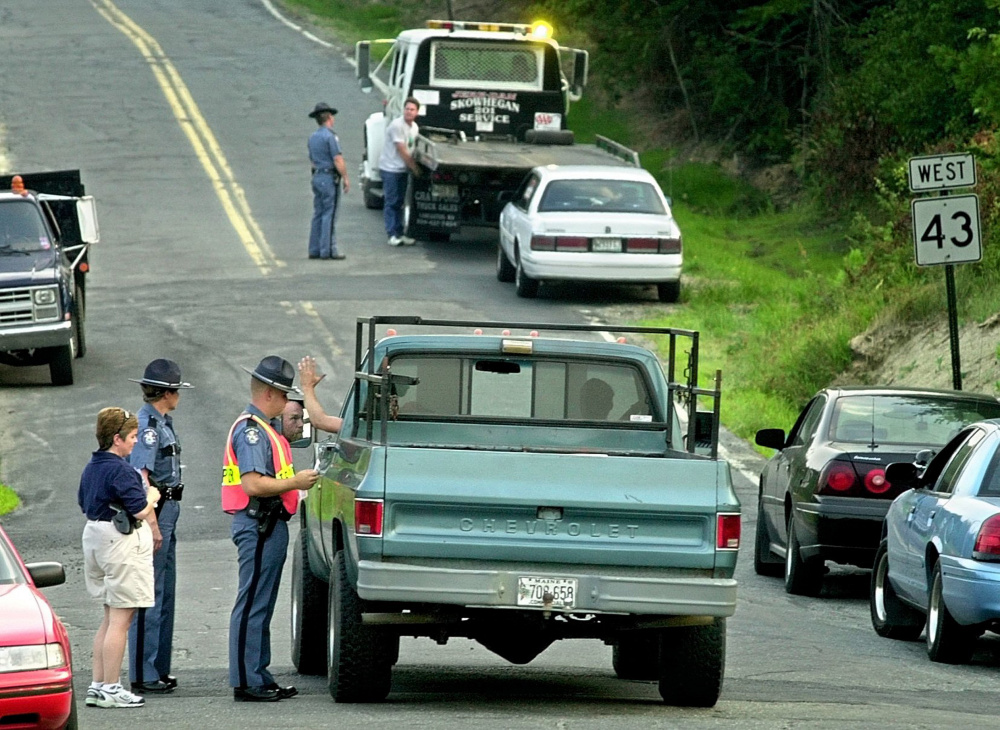The town of Starks is considering an ordinance regulating the establishment of medical marijuana businesses in response to an informal proposal to open a marijuana research laboratory in town.
The proposed ordinance has not been drafted yet, but selectmen are planning to approve its spot on a March 11 referendum ballot on Monday, First Selectman Paul Frederic said.
Under state law, municipalities can approve temporary moratoriums for up to 180 days while they work on developing more permanent ordinances or regulations to address an issue.
“I suppose it falls in the same category as alcohol,” Frederic said. “It’s a perfectly legal product, but there are regulations on selling alcohol. We don’t want a bar next to a church or next to a playground. It’s the same idea with medical marijuana. We recognize there are legal activities out there that might not be a good fit for certain locations.”
Starks has a long history of divided opinions about the use of marijuana. It’s the home to three annual pro-marijuana festivals that in the past have drawn the ire of some residents.
It’s also not the only town to consider or adopt regulations recently about the distribution of medical marijuana.
Maine voted in 1999 to legalize the use of medical marijuana, and subsequent expansions of the law have allowed drug dispensaries and medical marijuana caregivers throughout the state.
In 2013, Portland became the first city on the East Coast to legalize small amounts of marijuana for recreational use, and some advocates are pushing to legalize recreational marijuana statewide.
“With this sort of general liberalizing in marijuana laws over time, it’s safe to say that more and more towns are dealing with this,” said Eric Conrad, communication and educational services director for the Maine Municipal Association.
The MMA recommends that towns deal with medical marijuana business ordinances on a local level.
“In general we’re all about local control, so if the people of the town, led by their leaders, make a wise decision about siting, we would support well-reasoned decisions at the grass-roots level,” Conrad said. “They know their town better than anybody.”
He also cautioned that while moratoriums can be extended, they cannot go on indefinitely.
Other communities in Maine, including Brewer, Auburn, Ellsworth and South Portland, either have enacted or plan to enact moratoriums on dispensaries, according to the Maine Legislature.
Skowhegan adopted a medical marijuana ordinance in 2011, regulating the placement and operations of dispensaries, though Town Manager Christine Almand said the town has yet to be approached by anyone interested in bringing a dispensary to Skowhegan.
“It’s a good idea to decide where those facilities can and can’t be,” Almand said. “You’re allowed to designate safety areas, such as areas where children are primarily at. You wouldn’t want medical marijuana facilities near schools, ballparks or the community center where the town’s children are.”
Officials in Madison also considered drafting such an ordinance earlier this year, but Madison Town Manager Tim Curtis said Thursday that the town decided against it because it already is in the midst of revising or approving several other ordinances.
The proposed ordinance in Starks could differ in that it would pertain not just to dispensaries, but also to other medical marijuana businesses, Frederic said.
No proposal has been brought to the town formally yet, but Frederic said there have been discussions about the creation of a medical marijuana testing laboratory where research would take place.
“I don’t know if this will ever get beyond the chit-chat phase, but some residents expressed the thought that townspeople should at least be able to consider a moratorium to give the town time to put together an ordinance regulating such facilities,” Frederic said.
After the moratorium, an ordinance probably would provide zoning for medical marijuana businesses so they cannot be built near a church or community center, for example.
“I think it’s one of those things that makes some citizens — I don’t know if ‘nervous’ is the right word — but it makes them interested in what might or might not be possible,” Frederic said.
In addition to the medical marijuana ordinance, residents in Starks also will consider updating the Board of Appeals Ordinance and also whether to enact an ordinance regulating the construction of wireless communications structures on March 11.
Both were spawned by recent controversy over the construction of a cellphone tower on Abijah Hill Road.
Harry and Cindy Brown, who have held yearly pro-marijuana festivals at their farm on Abijah Hill Road, beginning with Hempstock in 1991, vehemently opposed the construction of the tower, which they said posed health risks and would be a visual nuisance at the farm where the festivals are held.
In July 2013 the Browns proposed a moratorium on telecommunications towers, but the proposal was never passed.
Rachel Ohm — 612-2368
Twitter: @rachel_ohm
Send questions/comments to the editors.




Success. Please wait for the page to reload. If the page does not reload within 5 seconds, please refresh the page.
Enter your email and password to access comments.
Hi, to comment on stories you must . This profile is in addition to your subscription and website login.
Already have a commenting profile? .
Invalid username/password.
Please check your email to confirm and complete your registration.
Only subscribers are eligible to post comments. Please subscribe or login first for digital access. Here’s why.
Use the form below to reset your password. When you've submitted your account email, we will send an email with a reset code.